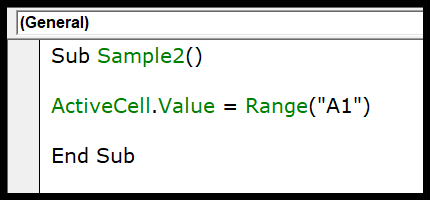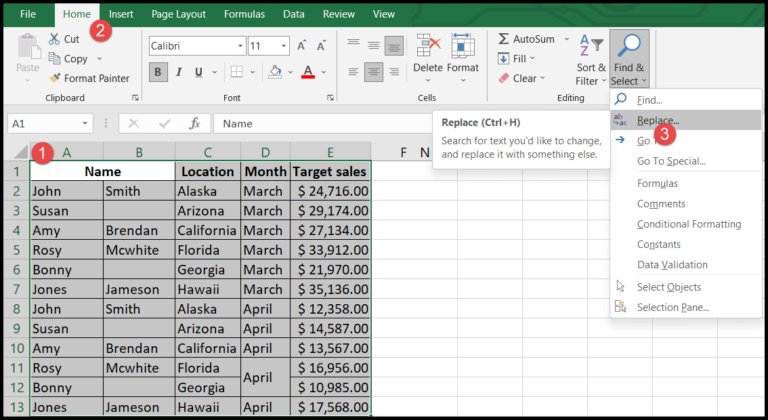Software sales professionals are at the forefront of the tech revolution, pushing digital boundaries by introducing innovative software solutions to businesses and consumers. In this dynamic field, they play the vital role of matchmakers, pairing technology’s capabilities with customer needs. The career path in software sales is rich with diversity, offering roles that range from account executives and sales engineers to positions focused on the development and strategic movement of a software product. This industry doesn’t just demand a solid understanding of tech trends, but also strong communication skills and a persuasive knack for leading a potential customer through the mental journey of recognizing the value of a software solution.
The earning potential in software sales is enticing, drawing individuals with the promise of lucrative rewards aligned with performance. As one climbs the career ladder from the introductory Sales Development Representative (SDR) to a seasoned Vice President of Sales, their financial horizon broadens significantly. This is especially true within the SaaS (Software as a Service) sphere, where a blend of salary, commissions, and bonuses reflects the success of not just selling software, but building enduring relationships and ensuring customer satisfaction.
Breaking into the tech industry through software sales offers more than just monetary gains; it’s an opportunity to stay on the cutting edge of technology. The professionals in this field are often the first to witness the impact of their products, seeing how the latest applications and platforms they sell enhance operational efficiency, drive business growth, and sometimes, even spark industry-wide transformations.
Understanding Software Sales
In the tech-driven business landscape, software sales are critical to the success of a multitude of companies. This section delves into the nature of software sales and the various roles that contribute to this dynamic field.
Definition of Software Sales
Software sales refer to the business activity that entails selling computer programs and digital solutions to customers. These transactions can span across different models such as Software as a Service (SaaS), where customers access software over the internet, rather than owning it outright. The primary aim here is to understand and meet the needs of prospects while offering ongoing support to clients.
Types of Software Sales Jobs
The field of software sales is diverse, offering several specialized roles. Each serves a unique function in driving the business’s revenue through software solutions:
- Outside Sales: Professionals in this track often travel to meet clients face-to-face, establishing relationships and closing deals traditionally.
- Inside Sales: They are tasked with managing remote sales operations, often conducting business online or over the phone.
- Sales Engineer: A role combining technical expertise with sales skills, helping demonstrate how a software product fits a customer’s needs.
- Account Manager: Charged with nurturing client relationships post-sale, ensuring satisfaction and seeking opportunities for upselling or cross-selling.
- Sales Development Rep (SDR): Focuses on lead generation and qualifying prospects as a cornerstone of the sales process.
These positions are key components of what is broadly known as tech sales or software sales jobs, each contributing to the software life cycle from prospecting to closing and post-sales support.
Preparing for a Software Sales Career
To launch a successful career in software sales, candidates should focus on meeting educational requirements, gaining sales experience, and building a strong professional network and personal brand.
Educational Requirements
A college degree, often in business or computer science, is a typical starting point for those entering software sales. While some positions may not strictly require a degree, it offers a strong foundation and improves job security. Certifications in specific software products or sales methodologies can also boost a candidate’s profile.
Building Sales Experience
Prospective software sales professionals should start by seeking opportunities to gain sales experience, which is crucial for professional growth. This can initially include roles like Sales Development Representative (SDR), where one can learn the basics of selling software and progress to roles with more responsibility, such as Account Executive.
Networking and Personal Branding
Effective networking and a strong personal brand are invaluable. They should leverage platforms like LinkedIn and engage in industry-related social media to connect with peers, mentors, and leaders in the field. A mentor can be particularly beneficial for guidance and to help navigate the path to success in software sales.
Roles and Responsibilities
In the realm of software sales, the roles and responsibilities are clearly demarcated to ensure the sales cycle runs smoothly and effectively. They particularly focus on strategy execution and fostering client relationships.
Account Executive Duties
An Account Executive in tech sales plays a crucial role in establishing and nurturing relationships with clients. They are primarily responsible for:
- Identifying Potential Clients: Researching and reaching out to potential leads that are likely to benefit from the software.
- Consultative Selling: Understanding each client’s unique needs and presenting software solutions that align with their business goals.
- Closing Deals: Guiding potential clients through the sales process and securing the sale.
- Post-Sale Support: Ensuring customer satisfaction and maintaining a strong relationship for potential future sales and referrals.
Sales Strategy is integral to the Account Executive’s role, requiring them to devise and implement tactics tailored to each client, aiming at sustained engagement and revenue growth.
Sales Operations and Processes
Sales Operations and Processes serve as the backbone of the sales team. They encompass:
- Sales Organization: Structuring the team for optimal efficiency and coverage, with clearly defined roles.
- Lead Management: Effectively managing leads at every stage of the sales funnel to improve conversion rates.
- Data Analysis: Utilizing CRM and sales data to refine sales strategies and make data-driven decisions.
Sales Processes ensure consistency and reliability in how sales are conducted, thereby increasing the team’s ability to predict and meet sales targets.
The Selling Process
In software sales, the journey from identifying a potential customer to finalizing a deal involves meticulously planned stages. Businesses need to understand these stages not just to sell initially but also to grow the relationship through upselling.
Lead Generation and Prospecting
At the start of the sales cycle, companies focus on lead generation and prospecting. This is where they pinpoint prospective clients who may benefit from their product. Effective prospecting is a mix of art and science, entailing research and the use of analytics to identify potential customers who show the characteristics of a qualified lead. These leads are then nurtured through various communication channels.
- Tools and Techniques Used:
- Social media platforms for broader reach
- Data analytics to spot trends and characteristics
- Cold-calling and email campaigns for direct contact
Skills Needed:
- A keen sense of empathy to understand client needs
- An element of curiosity to dig deeper into potential issues the software can solve
Sales Demos and Communication
Once leads are identified, sales teams move to demos and communication. This stage allows potential customers to see the software in action. During demos, it’s important for the salesperson to harness their sales experience, pairing strong communication skills with an understanding of the client’s business to address pain points effectively.
- Strategies for Effective Demos:
- Tailor demos to reflect the client’s specific problems
- Emphasize unique features that provide real solutions
Sellers need to actively listen and adapt their presentations to resonate with the client’s situation, showing genuine empathy for their challenges.
Closing and Upselling
Finally, the stage comes for closing and upselling. Closing a deal requires confidence and an assurance that the product meets the client’s needs. It’s not just about finishing a sale; it’s about opening a door. After the initial sale, smart sellers look for opportunities to upsell. This could mean upgraded packages, additional features, or expanded services that provide added value to the client.
- Key Factors for Success:
- A trustworthy relationship built on successful communication
- Consistently delivering on promises, reinforcing the client’s decision
Through careful attention to the client’s evolving needs, sellers can identify and propose enhancements that contribute meaningfully to the client’s business operations.
Compensation and Growth
In software sales, compensation is a mix of salary, commissions, and bonuses, which can evolve significantly as one progresses from an entry-level position to roles with more responsibility.
Understanding Sales Compensation
Software sales professionals often have a compensation package that includes both a base salary and variable components like commissions and bonuses. The base salary is a fixed amount paid to an employee, while commissions are typically a percentage of the sales they generate. Bonuses may be awarded for exceeding targets or for company performance.
- Base salary: Can range from $39k to over $60k for entry to mid-level roles.
- Commissions: Usually a percentage of sales, incentivizing revenue generation.
- Bonuses: Granted for exceptional performance.
For example, an Account Executive (AE) might have a base salary of $60k and earn additional income through commissions. At higher levels, such as a VP of Sales, both the base salary and potential for bonuses increase significantly, reflecting their greater responsibility in driving the company’s revenue and growth.
Career Advancement
As a sales professional advances in their career, from AE to potential CEO, the financial benefits tend to increase. The average salaries grow, often substantially, as they climb the corporate ladder.
- Average salaries: Entry-level may start under $40k; more experienced AEs can earn up to $118k.
- VP of Sales: Has a much higher base salary, reflecting their strategic role.
Career progression typically follows a path from AE to sales leadership roles such as Sales Manager, Director, and ultimately VP of Sales. Ambitious sales professionals may even set their sights on becoming CEOs, utilizing their deep understanding of the business’s sales engine to guide overall company strategy.
Leveraging Technology in Sales
The integration of technology in sales, especially in selling software products like SaaS (Software as a Service), has fundamentally transformed how businesses approach customer relationships and measure performance. By utilizing CRMs for data-driven strategies and leveraging social media for engagement, companies are experiencing unprecedented efficiencies.
Role of CRMs and Analytics
Customer Relationship Management (CRM) systems have become indispensable for technology sales. They enable sales teams to keep detailed records of customer interactions, preferences, and feedback, which can be instrumental in closing deals and fostering long-term loyalty. Analytics play a critical role in this equation. A CRM powered by analytics can provide insight into sales patterns and customer behavior, guiding sales reps to optimize their efforts.
Key Benefits of CRM and Analytics in Sales:
- Enhanced Customer Insights: Track and analyze customer data to personalize sales approaches.
- Improved Sales Efficiency: Use predictive analytics for identifying promising leads and opportunities.
The Impact of Social Media
Social media has revolutionized the way software products are marketed and sold. With millions of potential customers active on these platforms, sales teams can:
- Engage directly with their audience in real time.
- Utilize targeted advertising to reach specific demographics.
The use of social media analytics tools further allows companies to monitor the effectiveness of their campaigns, adjust tactics promptly, and understand the impact of their social media presence on sales figures.
In summary, leveraging technology such as CRM systems and social media has empowered sales teams to better understand their customers, streamline their sales process, and ultimately, drive more effective selling of software products.
Notable Figures in Software Sales
The software sales industry has been shaped by influential leaders and knowledgeable mentors who have driven growth and innovation.
Influential Sales Leaders
Bob Kocis made waves as Aptean’s President of the Americas in 2022. He notably directed sales strategies that set industry benchmarks for software targeting niche verticals. His initiatives boosted productivity among manufacturers and distributors, influencing their business growth substantially.
Jean-Philippe Courtois at Microsoft left a significant imprint on the company’s global sales operations. His strategic insight across 124 subsidiaries echoes the critical role of seasoned leaders in steering multinational sales efforts.
Sales Mentors and Training
Sales training and mentorship have transformed raw talent into top performers. Donald is a sales influencer who stands out for his mentorship. As a trainer and author, he’s guided salespeople through the intricacies of the trade with resources like “Sell It Like A Mango.”
Among the pantheon of sales mentors, Donald T. Valentine and Larry Ellison are titans in venture capital and technology sales. Their methodologies and insights continue to inspire sales managers and salespeople alike. For instance, Valentine’s approach in identifying and nurturing high-potential startups sets valuable precedents for cutting-edge sales tactics.
While not solely recognized as a ‘mentor’ in traditional senses, Mark Cuban’s entrepreneurial journey and insights glean from his experience have motivated many in the software sales field. His acumen has inadvertently mentored countless aspiring salespeople looking to innovate and push the envelope in competitive markets.
Frequently Asked Questions
Navigating the world of software sales can be complex. This section aims to clarify common queries regarding this dynamic field.
What is the typical job description for a software sales position?
A software sales professional is responsible for selling software products and services to customers. They manage client relationships, demo products, and close sales deals.
What kind of education background is required to break into software sales?
Although a degree in business or technology can be beneficial, strong communication skills and a passion for technology are often paramount in software sales.
Are there particular companies known for their software sales opportunities?
Companies like Salesforce, Oracle, and SAP are renowned for their robust software sales departments, offering a spectrum of opportunities.
What entry-level jobs should someone consider if they want to start a career in software sales?
Positions like Sales Development Representative (SDR) or Associate Account Executive can serve as springboards into a software sales career.
How do salaries compare in the software sales industry?
Salaries in software sales vary widely, with base compensation supplemented by commissions and bonuses, reflecting one’s sales performance.
Can you walk me through a day in the life of someone working in software sales?
Days can consist of prospecting new clients, attending meetings, conducting presentations, negotiating contracts, and ensuring customer satisfaction post-sale.



